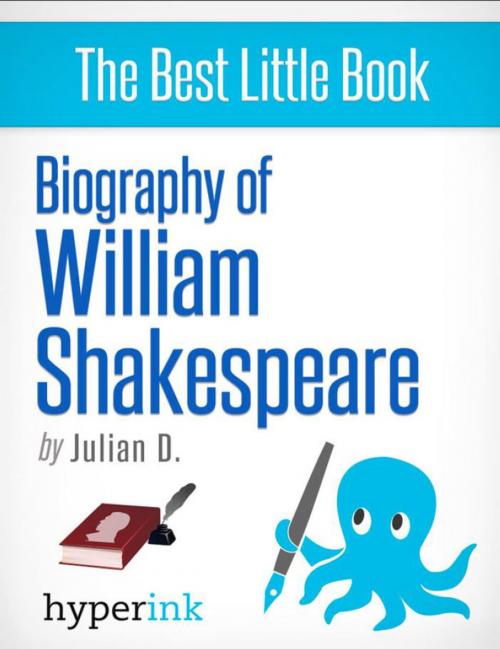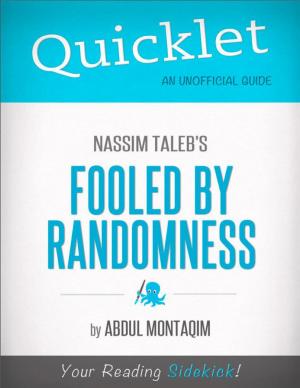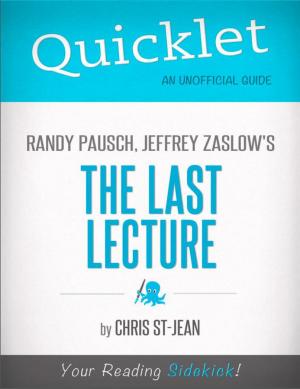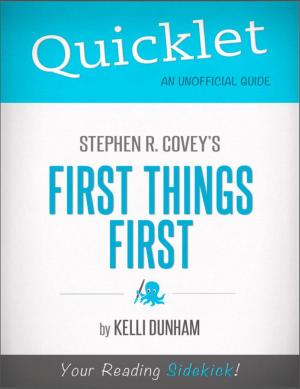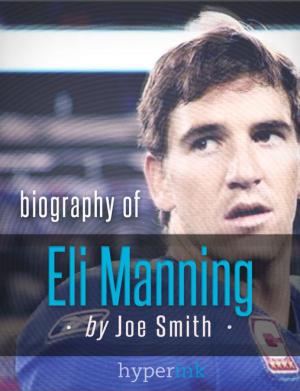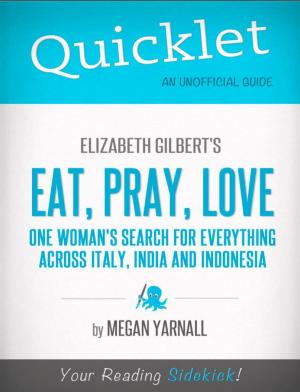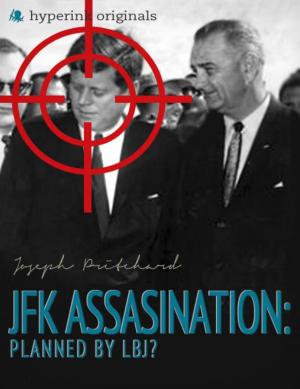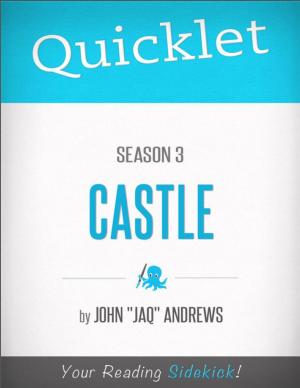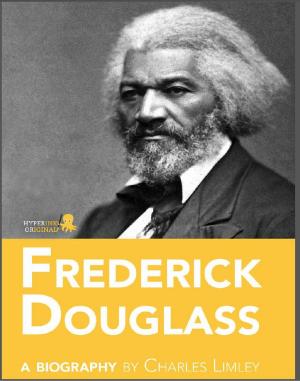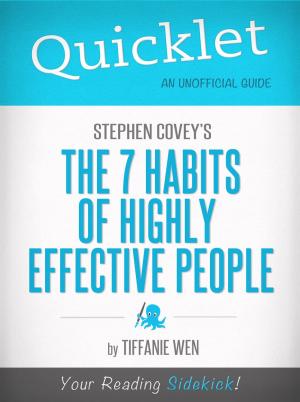| Author: | Julian D. | ISBN: | 9781614648659 |
| Publisher: | Hyperink | Publication: | March 2, 2012 |
| Imprint: | Hyperink | Language: | English |
| Author: | Julian D. |
| ISBN: | 9781614648659 |
| Publisher: | Hyperink |
| Publication: | March 2, 2012 |
| Imprint: | Hyperink |
| Language: | English |
ABOUT THE BOOK
William Shakespeare is arguably the most important figure in Western literature. Critic Harold Bloom claims it is impossible to escape Shakespeare, that "no one yet has managed to be post-Shakespearean.” Shakespeare’s reputation has only grown in the period since his death; especially since the end of the 17th century when Classical dramatic ideals went out of fashion, for Shakespeare's endless inventiveness and blending of comedy and tragedy conflicted with these strict rules. His popularity reached the stratospheric heights we are familiar with today in the 19th century, when the Romantics found his work elided with their aesthetic concerns.
It is not just in the rarefied realm of literature that Shakespeare's influence weighs heavy; the very English language remains unbelievably Shakespearean. He can claim first recorded usage of 2,035 words, with Hamlet alone contributing 600, an average of one every two-and-a-half lines. David Crystal, in "The Stories of English," points out many of these are words with un- prefixes, such as unlock, unmask, untie, unveil. Just imagine how wordy and inelegant the alternatives are.
EXCERPT FROM THE BOOK
Shakespeare could not have chosen a better time to become a playwright. The first theater in London opened in 1567, and by the time Shakespeare arrived, more and more were springing up around the outskirts of London. This was the golden age of theater, and between 1567 and the Puritans' closing of the playhouses 75 years later, it is thought over 50 million paying customers saw plays in London, ten times the population of England at the time.
Elizabethan theaters were tremendously spare compared to theaters of today, with barely any scenery and no curtains (even at the theater named the Curtain). They made up for this with copious amounts of gore – sheep blood and guts would be liberally splashed on swords and "dead" actors, and bloody artificial limbs would be strewn about battlefields. Firearms were popular too – though this could be quite risky, as a large proportion of Elizabethan theaters met their end with a stray spark setting dry straw alight, including Shakespeare's Globe...
Buy a copy to keep reading!
ABOUT THE BOOK
William Shakespeare is arguably the most important figure in Western literature. Critic Harold Bloom claims it is impossible to escape Shakespeare, that "no one yet has managed to be post-Shakespearean.” Shakespeare’s reputation has only grown in the period since his death; especially since the end of the 17th century when Classical dramatic ideals went out of fashion, for Shakespeare's endless inventiveness and blending of comedy and tragedy conflicted with these strict rules. His popularity reached the stratospheric heights we are familiar with today in the 19th century, when the Romantics found his work elided with their aesthetic concerns.
It is not just in the rarefied realm of literature that Shakespeare's influence weighs heavy; the very English language remains unbelievably Shakespearean. He can claim first recorded usage of 2,035 words, with Hamlet alone contributing 600, an average of one every two-and-a-half lines. David Crystal, in "The Stories of English," points out many of these are words with un- prefixes, such as unlock, unmask, untie, unveil. Just imagine how wordy and inelegant the alternatives are.
EXCERPT FROM THE BOOK
Shakespeare could not have chosen a better time to become a playwright. The first theater in London opened in 1567, and by the time Shakespeare arrived, more and more were springing up around the outskirts of London. This was the golden age of theater, and between 1567 and the Puritans' closing of the playhouses 75 years later, it is thought over 50 million paying customers saw plays in London, ten times the population of England at the time.
Elizabethan theaters were tremendously spare compared to theaters of today, with barely any scenery and no curtains (even at the theater named the Curtain). They made up for this with copious amounts of gore – sheep blood and guts would be liberally splashed on swords and "dead" actors, and bloody artificial limbs would be strewn about battlefields. Firearms were popular too – though this could be quite risky, as a large proportion of Elizabethan theaters met their end with a stray spark setting dry straw alight, including Shakespeare's Globe...
Buy a copy to keep reading!
